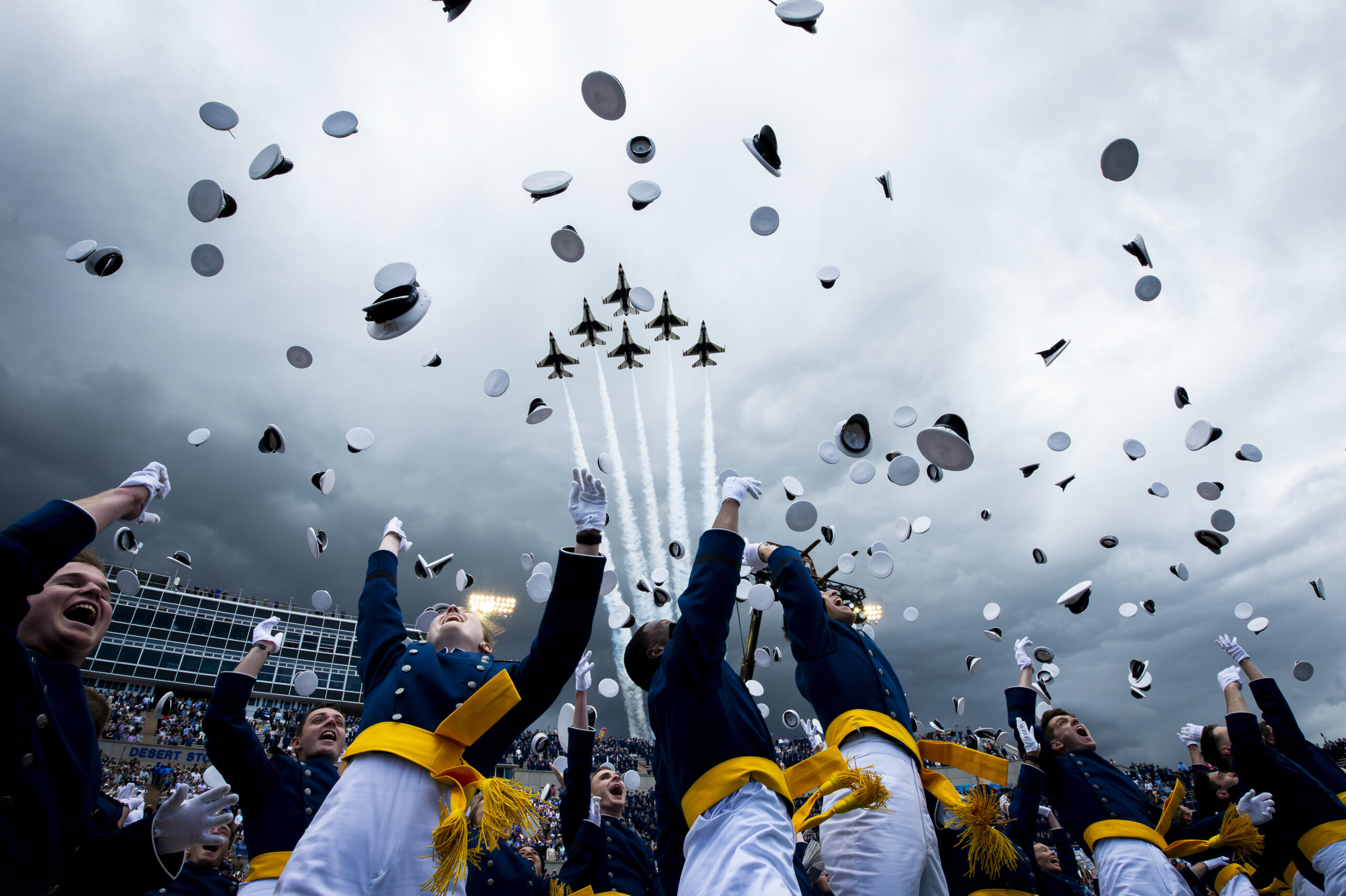WingsofBlue19
USAFA Hopeful
- Joined
- Jul 14, 2023
- Messages
- 9
I'm going into my sophmore year of high school, I have a >4.0 GPA, a 30 ACT composite(as of freshman year), and more credits than I should. On that point, I am faced with a choice; I can either graduate this year(sophmore year), or go through all four years. To give a bit of background, I am an AFJROTC cadet who takes several AP classes, am in the top 5% of my class, and#1 in unweighted GPA(230 people), have taken FAA created and accredited Aeropsace and leadership classes, I am a CAP cadet, the commander of our Kitty Hawk Air Society(JROTC's academic honor society), the captain of our J-LAB(JROTC Leadership & Academic Bowl) team, where we almost made it to nationals, and I am the Vice-Commander of Drill/Color Guard. I' still 15, but I' fairly physically fit(top 15%), with 48 pushups in a minute, 53 situps in a minute, and a 6:58 Mile run as of my last PT assessment. I can also do 9 pull ups, probably more if I really pushed it. The problem here is that I don't meet the credit recommendations suggested by USAFA. I have a credit plan, which covers every one, but it would require me to stay all four years. Plus, staying all four years would allow me to spend more time in JROTC, which will likely get me a better leadershop position, and give me time to write my congressman, up my class rank, increase my ACT scores, get more involved in ECAs/Athletics, etc. However, if I decide to graduate early(correct me if I'm wrong, please, I've been wanting to know)then I'll apply for an AFROTC scholarship at EKU for aviation, however, I'm not sure if the lack of the recommended classes(from the USAFA website) would affect my chances of this, and I' you're you know better than me, so please tell me, atleast your opinion. Anyways, at the very least graduating early would afford me two years to attend college beforehand, and possibly even complete college level ROTC and commision(I'd be 20 upon college graduation.) Anyways, now that you know the background, I'd love to hear your opinion. Should I stay all four years for the greater chance of admission, or should I graduate 2 years early, take the calculated risk(The American Creed, read it if you haven't, please), and either get two years of college in before I apply to USAFA, or try and go to AFROTC? I only have 28 days or so to decide my future, so Godspeeed, and God Bless you.

